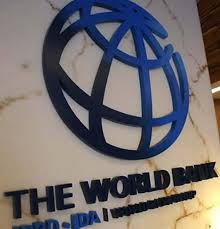As we celebrate World Breastfeeding Week 2024, it’s an opportunity to reflect again on the importance of breastfeeding to the infant and the mother. We must emphasise the universal right to breastfeeding and collectively support as individuals, families, and society.
Breastfeeding is the cornerstone of a child’s health and development. Breast milk is a complete source of nutrition, providing all the essential nutrients, vitamins, and minerals that a baby needs for healthy growth and development. It contains antibodies that help infants fight off viruses and bacteria, reducing the incidence of infections and illnesses such as ear infections, respiratory infections, and diarrhea.
Breastfeeding has been linked to improved cognitive development and a lower risk of chronic conditions later in life, such as obesity, Type 2 diabetes, and cardiovascular disease.
The intimate act of breastfeeding also fosters a strong emotional bond between mother and child, contributing to the infant’s sense of security and well-being.
Breastfeeding promotes faster postpartum recovery by stimulating the release of oxytocin, a hormone that helps the uterus return to its pre-pregnancy size and reduces postpartum bleeding. It also assists in burning extra calories, which can contribute to postpartum weight loss for the mother.
All mothers need to know the importance of breastfeeding their babies.
Beyond breastfeeding your baby from 0-2 years as a mother it has been associated with a lower risk of developing certain types of cancer, including breast and ovarian cancer. It may also reduce the risk of developing osteoporosis and cardiovascular disease.
Despite knowing the benefits of breastfeeding, many mothers encounter barriers that prevent them from breastfeeding successfully. These challenges can range from physical difficulties, such as latch issues and low milk supply, to social and economic obstacles, including lack of support at home and in the workplace.
This year’s theme calls for a collective calls approach to addressing the barriers these women face. This includes ensuring access to accurate information and education about breastfeeding, providing professional support through lactation consultants and healthcare providers, also to foster supportive environments in both public and private space.
Workplaces should create policies that provide maternity leave, flexible work hours, and designated breastfeeding spaces for mothers, this would make a significant difference. Community support groups and peer counseling can also offer valuable encouragement and assistance, creating a network of solidarity among breastfeeding mothers.
World Breastfeeding Week 2024 serves as a reminder of our collective responsibility to support breastfeeding mothers. By championing “Breastfeeding Support for All,” we can help ensure that every mother has the opportunity to provide her child with the best possible start in life. Individuals, communities, and governments work together to create a world where breastfeeding is universally encouraged, supported, and normalised.





















